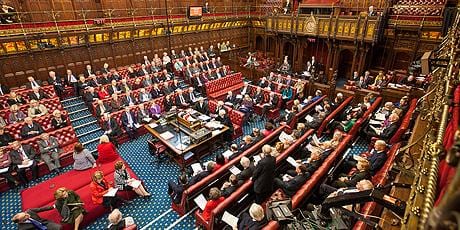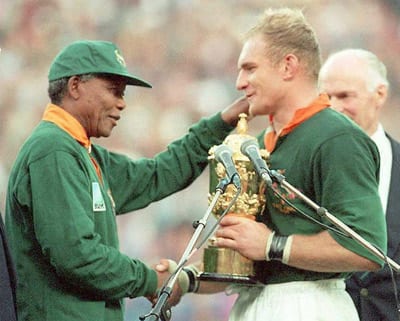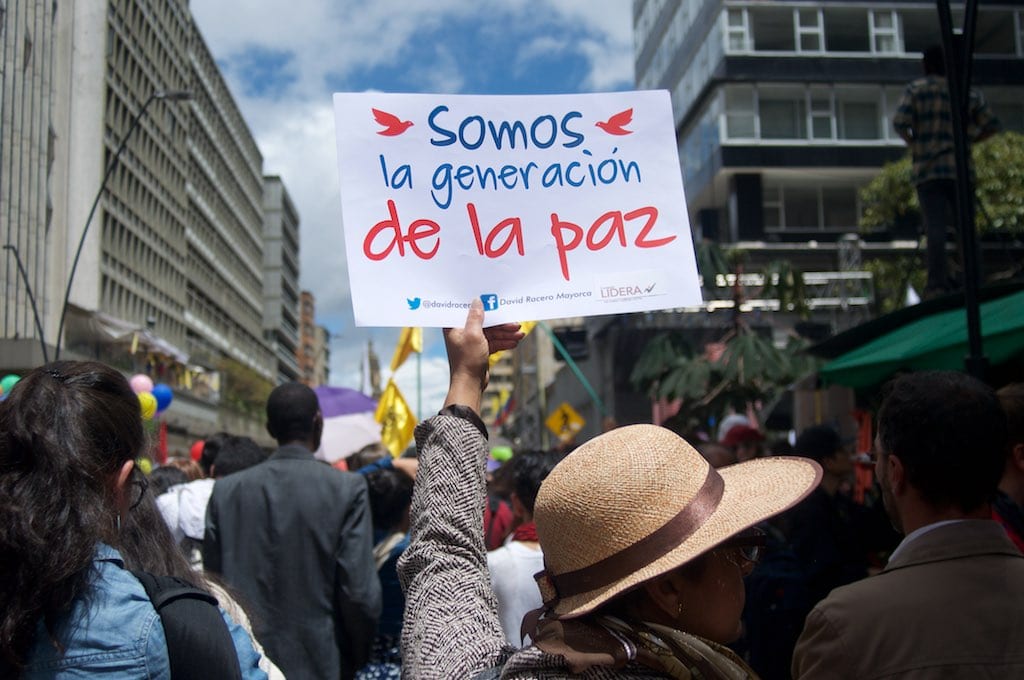
Latin America: The trends beyond the headlines
You wouldn’t know it from President-elect Donald Trump’s campaign rhetoric, but Latin America is an immensely important economic and security partner for the United States. Increasingly open and engaged, the region has seen a dramatic shift in the last twenty years away from insecurity and protectionism and toward international cooperation, with deep impacts for the United States. Opening doors for U.S. investments in Argentina, President Mauricio Macri has enacted outward-looking economic and trade policies following decades of protectionist economics. Bringing revenue to U.S. farmers, the North American Free Trade Agreement has more than doubled United States agricultural exports to Mexico, making the country the United States’ third largest agricultural market. Securing peace in the Western Hemisphere after 52 years of conflict, the government of Colombia and the Revolutionary Armed Forces of Colombia have taken steps to reconcile polarization and to reach a renewed peace agreement following the national plebiscite. Far beyond the picture of illegal immigration Donald Trump paints, Latin America has benefited the United States and will continue to do so. The region has cleaned up its act. If the next U.S. administration wants to continue its strategic and beneficial partnership with its neighbors to the South, it may want to clean up its rhetoric. Public diplomacy can help.
The gaps, the new global players, and PD
In the weeks following the election of a presidential candidate that espoused a vision of isolationism and “America first,” engagement with Latin America has come under fire. In fact, if President-elect Trump sticks by his promises, U.S. bilateral and free trade agreements with countries in Latin America may be rolled back, cultural engagement may wane and investments may suffer. With countries like China and Russia increasingly present in Latin America, gaps may widen that allow for these nations to predominantly influence the political, cultural and economic conversation and realities in the region with potentially far-reaching consequences for the United States.
Whether or not a Trump-led pivot inward becomes a reality, at a time of deep misunderstanding and polarization, U.S. public diplomacy is imperative. Having long sustained relationships, public diplomacy has the potential to not only highlight the plethora of benefits engagement has brought to the United States and to countries in the region, but also assure the United States is seen as more than Donald Trump makes it out to be. Public diplomacy’s ongoing and long-term nature can thus help counter negative perceptions to facilitate the continuation of U.S. ties with the region. If nothing else, public diplomacy must go on.
Rhetoric’s consequences: America alone in the world?
During the 2016 presidential campaign in the United States, Latin American governments and publics bristled at the anti-Hispanic, anti-immigrant and anti-trade narrative the Republican candidate adopted. As a result, weeks after the election, it has been suggested America’s soft power may be a casualty of that toxic narrative. Shashi Tharoor, former Under Secretary General of the United Nations, suggests that while America’s domestic narrative has in the past made up for its foreign policy mishaps, Trump’s narrative of Mexico as a hub of illegal immigration, his suggestion that a Muslim registry be enacted and his overall comments against NAFTA and trade may now lead countries to associate America with “xenophobia,” “misogyny,” “pessimism,” and “selfishness.”
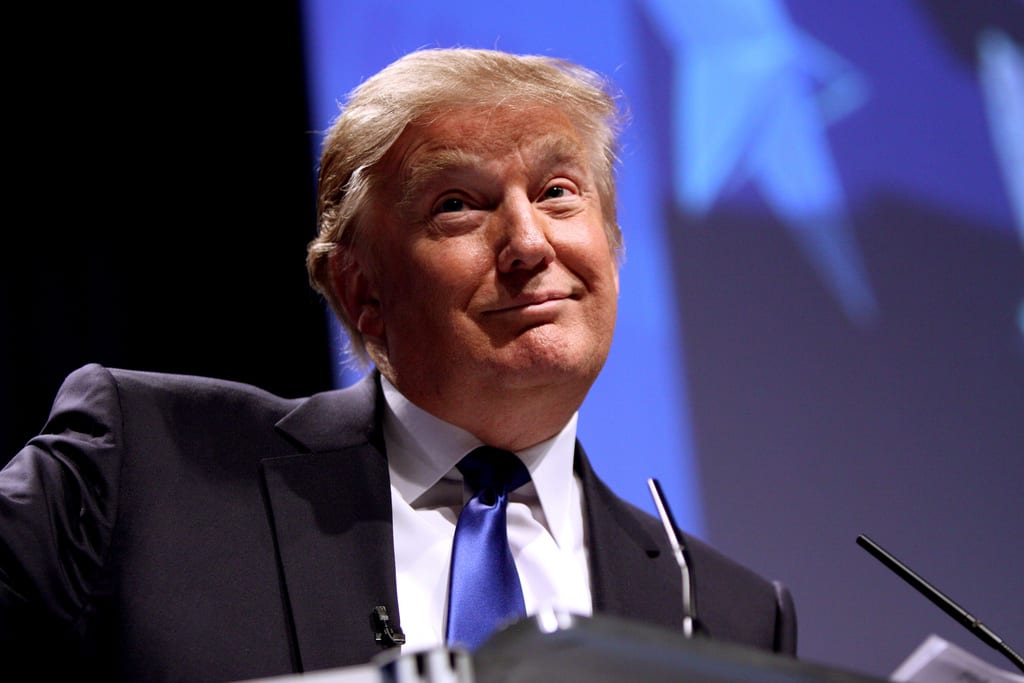
In lieu of the future President’s campaign promises, United States diplomats will have the tough job of shaping a narrative in a world replete with uncertainties. Because candidates tend to act on the promises they make on the campaign trail, the United States is likely to turn inward and to prioritize little about foreign policy with Latin America other than immigration and border security. Consequently, at the end of four years, the United States may no longer be seen as the country of the American dream. From a security standpoint, it may no longer have the influence it wishes to have.
The role of public diplomacy in strengthening ties
Realistically, it is too soon to say just how United States foreign policy and alliances will change when President-elect Trump comes into office.
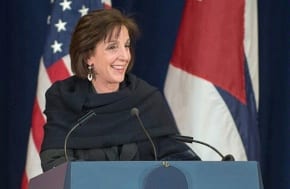
But, in Latin America, U.S. public diplomats can capitalize on shared interests and general positive public opinion of the United States to enhance a public diplomacy strategy that emphasizes the political processes, the strength of civil societies and businesses, and the freedom of speech and press — pillars of North American and Latin American democracies. United States personnel on the ground will surely encounter challenges in creating mutual understanding with Latin America because a say-do gap will inevitably exist. That said, vast sectors of the United States already actively engage with the region: businesses are investing, universities and research institutions have ongoing student, scientific and professional exchange programs, and NGOs already have a robust presence on the ground. In other words, public diplomacy is being conducted by other parties, whether or not we want to call it by that name. The foundation for collaboration is in place. Realistically, that foundation and those shared interests will not disappear overnight.
All of this is to say that as the new President prepares to enter the White House, U.S. public diplomacy should be more committed than ever to mitigating alienation of foreign audiences and sustaining open-minded two-way conversations. Latin America is moving away from populism at a time when the rest of the world moves toward it. U.S. public diplomacy is ripe to simultaneously reconcile a United States history of interventionism and foster long-term relationships by emphasizing shared interests, by sticking to active sectors of public diplomacy, and by sharing with the world the diversity of viewpoints that exist in the United States. This country has an interest in fostering mutual understanding, maintaining engagement, and sustaining its long-standing partnerships in the region. Beyond the narrative that comprises “America first,” “bad hombres,” and “nasty women,” U.S. public diplomacy remains alive and has the potential to mitigate negative perceptions over the long haul. At a moment of worldwide uncertainty—wars in the Middle East, a debilitating refugee crisis, increasing Russian and Chinese influence, and Britain’s exit from the European Union—Latin America is not only a region at peace but one that is quickly growing. It falls on U.S. public diplomats to bridge divisive narratives fueled by Donald Trump to assure engagement efforts are sustained. This will help guarantee the United States continues to reap the mutually prosperous benefits of collaboration with Latin America.
The views expressed in this posting are the author’s only and do not necessarily reflect those of George Washington University.

